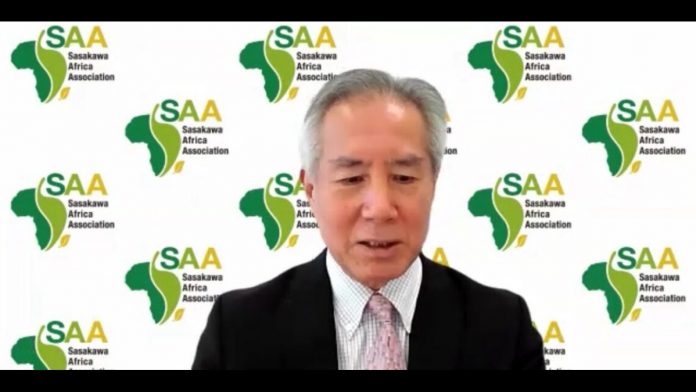News in Brief:
– The Sasakawa Africa Association (SAA) reiterates its committment to supporting decarbonisation and sustainable agriculture in Africa, focusing on empowering smallholder farmers.
– It advocates for soil amendments, AI-powered recommendations, and zero-carbon briquette production to achieve these goals and seeks collaboration with governments and partners.
The Sasakawa Africa Association (SAA), an international agricultural development NGO registered in Switzerland, has reaffirmed its commitment to supporting climate-smart agriculture and decarbonisation efforts across Africa. It reiterated its commitment to efforts leaning particularly towards smallholder farmers in the continent.
Makoto Kitanaka, the association’s president, made this latest announcement to newsmen during the organisation’s annual stakeholdersâ workshop in Zaria, Nigeria.
He declared the firmâs commitment towards supporting transformative work in Africa, especially as regards smallholder farmers. He noted their importance in the bodyâs scheme of things, describing them as central in its mission. The overall aim of the initiative is to advance the agricultural sector in African countries, including Nigeria, amidst evolving global challenges.
The asociation’s president added that capacity building, through knowledge sharing is part of their objectives as it will aid African farmers in securing food and nutrition.
Some of the strategies that SSA hopes to deploy to achieve its objectives include;
- Advocating for the use of soil amendments such as biochar and bokashi, along with urea deep placement techniques, to reduce carbon footprint and improve soil health.
- Introducing cutting-edge technologie like the Ekakashi device which utilises artificial intelligence (AI) and internet connectivity to collect environmental data and recommend optimal cultivation methods. It also mentiones the rice husk briquette production device which generates briquettes with zero carbon emissions, promoting sustainable practices.
- Collaboration to develop infrastructures, provide market access and capacity building.
Kitanaka proposed additional measures including introducing more decarbonisation technologies, supporting small scale renewable energy projects, and promoting water efficient practices as well as facilitating access to solar power irrigation systems and training of farmers in other sustainable farming techniques.
Meantime, the SAA Nigeria Country Director, Godwin Atser, highlighted the low productivity and income disparity that Nigerian farmers face compared to their counterparts in countries like India. He identified climate change and its impact on rainfall patterns, temperatures, and extreme weather events as significant threats to Nigeria’s agricultural output.
Sasakawa Africa projects in Nigeria
While the association did not reveal a timeline for its plans, the association has been operating in several African countries for decades. In Nigeria, for example, it launched a SG2000-Nigeria program in March 1992 and it is active in seven states âAdamawa, Bauchi, Gombe, Jigawa, Kano, Kaduna, and Zamfara.
“The project’s main objectives was to raise the crop management skills of front-line extension staff and smallholder farmers in order to increase crop production and productivity,” the website said. It has used over 2,000 extension agents and reach more than a million farmers in the country’s northern parts.



